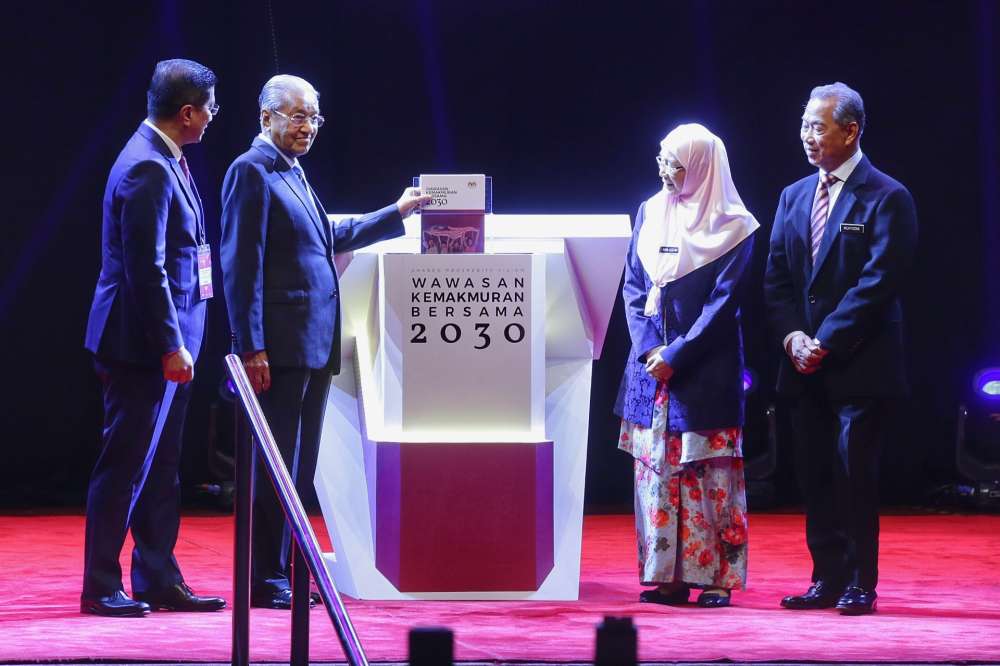KUALA LUMPUR, Jan 7 — The Shared Prosperity Vision 2030 (SPV 2030) is the pinnacle of the Economic Affairs Ministry’s (MEA) success in 2019, said its minister, Datuk Seri Mohamed Azmin Ali.
To realise SPV 2030’s goals and objectives, the ministry had conducted 390 engagement sessions with various parties in the preparation of the 12th Malaysia Plan, he said.
“2019 was a productive year for the MEA towards building a strong foundation to implementing the national development agenda.
“I, along with the entire leadership and staff of the ministry, will continue to intensify efforts to fulfil the Pakatan Harapan (PH) government’s commitments to the people,” he said in a report on MEA’s 2019 achievements issued today.
SPV 2030 is a new 10-year development roadmap involving the country’s economic restructuring towards a high-value economy and reducing the gaps between income, ethnic and regional groups as well as along the value chain.
Prime Minister Tun Dr Mahathir Mohamad launched the comprehensive blueprint on October 5 last year.
Meanwhile, Mohamed Azmin said MEA had carried out five pledges within four thrusts and three commitments specifically for Federal Land Development Authority (Felda) settlers outlined in PH’s Buku Harapan that were entrusted to his ministry.
He noted that MEA had tabled a White Paper on the Felda in Parliament to inject a new dynamism into and overcome difficulties of the 112,635 settlers and their families.
To champion the settlers’ well-being, the government has prepared a RM6.23 billion financial aid in the form of grants, loans and government guarantees under the Felda strategic rehabilitation plan for 2019-2025.
According to MEA’s report card, Felda’s outstanding loans with the financial institutions had fallen to RM6.89 billion as at December 31, 2019, compared with RM7.8 billion in 2017.
Outstanding debts with vendors shrank by 60 per cent to RM445 million from RM1.12 billion in 2017.
Meanwhile, among the other achievements by MEA in 2019 to spur the economy are providing development allocations totalling RM13.05 billion for developing six less-developed states, namely Perlis (RM299 million), Kedah (RM1.26 billion), Kelantan (RM1.6 billion), Terengganu (RM1.13 billion), Sarawak (RM4.18 billion) and Sabah (RM4.59 billion).
MEA also succeeded in empowering the halal industry through an economic collaboration between Malaysia and South Korea based on the Look East Policy 2.0, as well as restructuring the national halal industry agenda via the Halal Industry Development Corporation.
MEA also boosted the agricultural activities and development of smallholders as well as group settlement areas through productivity improvement assistance and development of smallholders under the Rubber Industry Smallholders Development Authority amounting to RM43.78 million.
To combat poverty, the ministry has earmarked RM100 million for enhancing the capacity and capabilities among the B40 household income group involving about 20,000 recipients.
More than RM7.64 million had been spent for “Kasih Ibu Darul Aman” programme to buy basic necessities worth RM250 per month and health treatment at private clinics valued at RM500 annually, MEA said. — Bernama



















